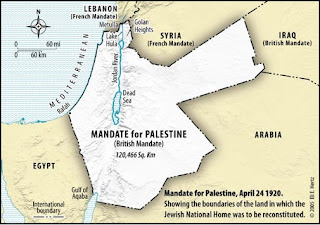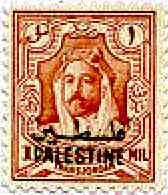Col. Richard Kemp: A Deal Based on Lies: The Iran Nuclear Agreement Will Make War More Likely
Iran has been waging war non-stop on the West and its allies in the Middle East since the Islamic Revolution in 1979. Appeasing Tehran by endorsing its nuclear program and handing it billions of dollars from sanctions relief will empower and encourage the ayatollahs to even greater aggression.
The mantra of the apologists for President Biden's attempt to revive President Obama's failed agreement from 2015 that paved the way to an Iranian nuclear bomb is "a bad deal is better than no deal." Well, no, it is not. The argument is that it buys time for the West, with optimism that "something will turn up." But optimism is not a strategy and certainly not for dealing with a violent revolutionary regime dedicated to the destruction of the Jewish state, which it sees as the proxy of its ultimate enemy, America.
The "buying time" argument only works if you do not understand Iran and are naive enough to believe the regime will honor what it agrees to. The reality is that the regime in Tehran will ignore constraints imposed by the deal that it does not like. That is what it did with the original JCPOA and its other international undertakings including the Nuclear Non-Proliferation Treaty that it has frequently breached.
Tehran will continue to develop its nuclear capability - deal or no deal - at the speed it wants until it is physically stopped from doing so. The $100 billion a year it will receive as a result of lifted sanctions will enable Iran to speed up its nuclear program, including development of ballistic missiles capable of carrying nuclear warheads to Europe and the U.S. Iran's regional aggression will shift into overdrive with the massive cash injection.
What kind of Temple Mount access do Israelis want?
The issue of the Temple Mount becoming a geopolitical flashpoint between Israel and its neighbors has robbed us of the opportunity of speaking about it religiously and historically. The increasing numbers of Israelis supporting a Jewish presence on Temple Mount, and the growing number of Jews ascending to Temple Mount – most famously the recent visit by conservative political commentator Ben Shapiro – demand that we ask ourselves: where is this all heading, and what would we like to see happen on the Temple Mount?Unpacked: The Secret Agreement That Shaped the Middle East | History of Israel Explained
If the White House, Saudi crown prince Mohammed bin Salman, Jordan’s Abdullah, China’s Xi Jinping, and the Secretary General of the UN all called and told the Israeli government that they would be delighted to see Israel take full control of Temple Mount, what would we do next? Differing Jewish views on the matter
To answer this, we must note the different positions among the Jewish people on this matter. The overwhelming number of Orthodox rabbis and the Chief Rabbinate would ask that the area be fenced in and that no one be allowed at the site known as Har Habayit until the messiah miraculously arrives.
On the other side of the spectrum, there is a fringe group of religious Jews who have been anticipating such a moment and would like to engage in a complete reconstruction of the Temple, build the Third Temple, and bring daily sacrifices and offerings so that “the offerings of Judah and Jerusalem shall be pleasing to God as in the days of yore and in the years of old” (Malachi 3).
In fact, in 1962, five years before the Six Day War, the IDF’s chief rabbi, Shlomo Goren, published an article saying that if Israel were to take over Jerusalem, we would be obliged to rebuild the Beit Hamikdash.
These two sides of the spectrum are irreconcilable. Those who believe in fencing the area off until the messiah arrives are not neutral on the matter – it is their belief, and they are the majority. To them, building the Temple and offering sacrifices – or even going up there today – is a far worse problem than the current status quo.
It was 1916 and World War I was raging. Countries were fighting for resources, land and power and the Ottoman Empire was on its deathbed.
With all eyes on the Empire’s territories, the secretive Sykes-Picot agreement was created to decide who would get control over what would become Syria, Lebanon, Israel, Jordan, Kuwait, and Iraq, as well as parts of future Saudi Arabia and Turkey.
However, in 1920, representatives at the San Remo Conference tossed these secret plans out in favor of “mandates'' AKA territory temporarily governed by an Allied power. This led to the British Mandate over Palestine, and the eventual establishment of Israel as a legal national home for the Jewish people.











.jpg)

.jpg)



































.jpg)




